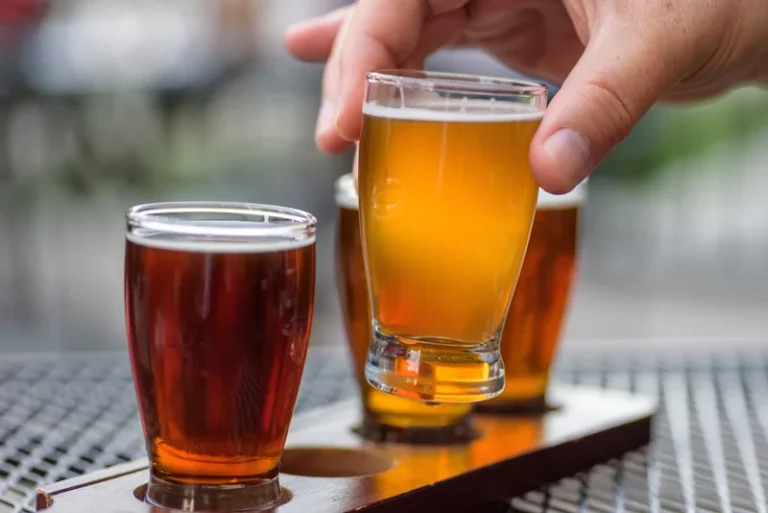
It’s worth noting that current guidelines advise against drinking alcohol as a way to improve health. If you’re worried about your or a loved one’s drinking habits, screening questionnaires like CAGE or AUDIT can help clarify the severity of alcohol use patterns and link them to possible health consequences. A Brief Overview of AlcoholEthyl alcohol (ethanol) is the psychoactive ingredient in beverages like beer, wine, and spirits. When consumed, ethanol is quickly absorbed in the stomach and small intestine, entering the bloodstream and traveling to organs, including the brain. There, it exerts a depressant effect, influencing mood, motor skills, and cognition. Meanwhile, it also impacts the body’s regulatory systems for vascular tone, fluid balance, and hormone release.

Medium-Dose Alcohol Effects
This is concerning as two in three adult drinkers report consuming more than moderate amounts of alcohol at least once a month, the Centers for Disease Control and Prevention (CDC) reports. Beyond narrowing your arteries, alcohol can also directly affect your heart muscle. Heavy drinking, in particular, can weaken the heart over time, reducing its ability to pump blood efficiently. This condition, known as cardiomyopathy, can further exacerbate high blood pressure and lead to a host of other cardiovascular issues. Even moderate drinking, if done consistently, can contribute to this strain. The relationship between alcohol and blood pressure is a topic that has long intrigued both medical professionals and the general public.
MeSH terms
High-dose alcohol consumption, defined as more than 30 grams within six hours, can decrease systolic blood pressure (SBP) by 3.5 mmHg and diastolic blood pressure (DBP) by 1.9 mmHg. Medium-dose alcohol consumption, which is between 14 to 28 grams within six hours, can decrease systolic blood pressure (SBP) by 5.6 mmHg and diastolic blood pressure (DBP) by 4.0 mmHg. According to the Mayo Clinic, alcohol can increase blood pressure by up to 5 what is alcoholism mmHg. Furthermore, repeated binge drinking can lead to long-term increases in blood pressure.
The effect of a reduction in alcohol consumption on blood pressure: a systematic review and meta-analysis
Sign up for free and stay up to date on research advancements, health tips, current health topics, and expertise on managing health.

Appointments at Mayo Clinic
A diet that’s high in fast food, processed food, carbohydrates and meat is a diet that’s likely to be low in potassium. No content on this site, regardless of date, should ever be used as a substitute for direct medical advice from your doctor or other qualified clinician. To start living life drug or alcohol-free, book an appointment today.
Microphysiological systems in drug discovery

The type of alcoholic beverage also determines the impact on health, with red wine being considered healthy, for instance, due to the high polyphenol content. Most importantly, masked hypertension, where patients are hypertensive at home but not in the doctor’s office, is as serious a health risk as sustained hypertension. A recent study shows the least mortality at 100 g/week or less of alcohol, with a dose-dependent relationship between alcohol and stroke, IHD, fatal hypertensive disease, heart failure, and fatal aortic aneurysm. Notably, the heart attack risk was in inverse relation to alcohol consumption levels. With moderate doses of alcohol, blood pressure (BP) went up for up to seven hours but normalized after that.
The Making of an Internet-Famous Fruit: How Sumo Citrus Has Captured Hearts, Tastebuds, and a Devoted Following
- In some cases, moderate to high levels of alcohol may cause blood pressure to rise.
- When you drink alcohol, it may lower your inhibitions so you not only eat more but also may make less healthy choices, Dr. Applebaum says.
- On the other hand, heavy drinkers—those who consume more than three drinks per day—are at a much higher risk of developing hypertension.
- She has counseled hundreds of patients facing issues from pregnancy-related problems and infertility, and has been in charge of over 2,000 deliveries, striving always to achieve a normal delivery rather than operative.
As Ye et al. have stated, this may be due to sodium intake, which is consumed at the same time as alcohol consumption. However, patients with hypertension in their study included a high proportion of non-dippers, even when the effect of acute alcohol was considered. High blood pressure, also known as hypertension, is a stealthy yet significant health challenge faced by almost half the adult population in the United States.
- There’s a lot you can do to bring down your BP if you’re concerned about your numbers.
- There is no singular recommended level of alcohol for people who have high blood pressure aside from reducing your intake as much as possible.
- At Healthgrades, our Editorial Team works hard to develop complete, objective and meaningful health information to help people choose the right doctor, right hospital and right care.
- Some people can achieve a healthy blood pressure with lifestyle adjustments alone.
- Drinking too much alcohol can result in high blood pressure and other dangerous heart problems over time.
- Depressants inhibit many of the brain’s functions, such as slowing down its control of the body, with even just small amounts affecting important functions like speech and movement.
This is when experimenting with different mocktail recipes, or choosing nonalcoholic drinks when you go out, can be fun and helpful. A doctor may recommend a person with hypertension not to consume energy drinks. Research from 2019 found that drinking 32 ounces (oz) of energy drink in an hour could increase blood pressure. Familial hypertension can be genetic, meaning you can get a gene from a parent that increases your risk of developing high blood pressure. You may also be more prone to developing high blood pressure because of family lifestyle choices.

Hypertension
You may have seen headlines that linked having one drink a day to a greater rise in blood pressure with age, compared to people who don’t drink at all. Assessing the risks and benefits of alcohol consumption remains an active area of research that may lead to major changes in official guidelines or warning labels. For millions of people, it’s a regular part of the dining experience, social and sports events, celebrations, and milestones. And the alcoholic beverage industry is a major economic force, responsible for more than $250 billion in sales annually in the US.
But more often, it’s with a combination of healthy lifestyle choices and medication that you’ll see the most benefit. Of course, no one needs to wait for new guidelines or warning labels to curb their drinking. Many are exploring ways to cut back, including the Dry January Challenge or alcohol-free drinks. Metabolism and ClearanceMost alcohol is processed by the liver, where enzymes (e.g., alcohol dehydrogenase) bp alcohol break it down into acetaldehyde and then acetate. The average person’s body can generally handle about one standard drink per hour.
